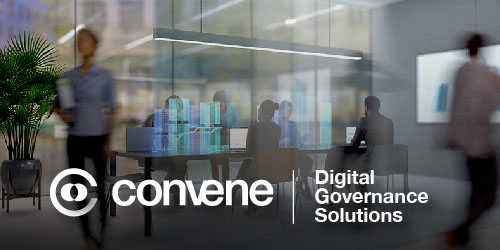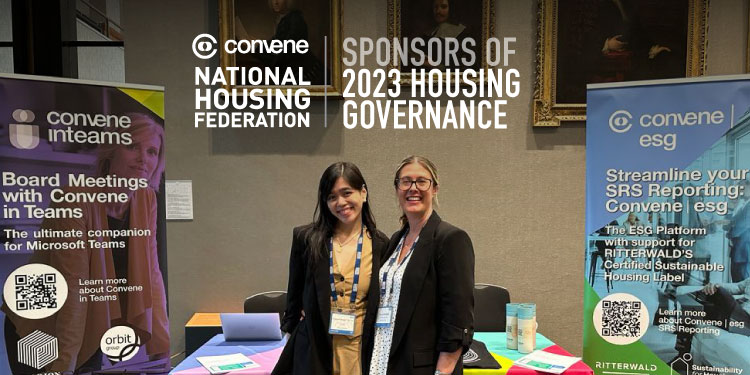With an uncertain year ahead, and a continuing cost of living crisis, this financial year for charities and non profits will be even more impactful. Understanding burgeoning governance issues in the sector is one way charities can prepare themselves for the year ahead.
7 min read
Governance Issues affecting Charities in Financial Year 2025
By Lottie Wright on 04/04/24 15:50
Topics: Governance Charity Business Insights
8 min read
Governance Issues affecting Housing in financial year 2025
By Lottie Wright on 01/03/24 14:51
Amongst unclear legislation and a cost of living crisis, Housing Associations need to be on top of their governance now more than ever. There are several governance issues that the sector needs to be prepared for, heading into the financial year 2025.
As said by the National Housing Federation, “Governance is the framework at the heart of a successful housing association. It sets standards of leadership and control and helps the board to define values by which the organisation will operate”.
First, it’s important to define governance, so we can label what exactly governance issues could be that could affect housing.
What is Governance, and what are Governance Issues?
Governance comprises all aspects of leadership and decision-making. It is the structures in place that allow a leader in any organised body to rule or control or dictate actions.
Corporate governance is the system a company chooses to put in place concerning rules, controls and policies to enforce a standard of behaviour.
Governance issues are therefore anything that could impact an organisation's ability to achieve good and effective governance, as well as the aspects of governance that companies and leadership teams need to be on top of this coming year.
Topics: Governance Housing
7 min read
Does your organisation need a CSO?
By Lottie Wright on 01/02/24 11:00
When sustainability is discussed, ESG specialists usually emphasise the significance of having a committed individual responsible for overseeing initiatives. This can help to maintain and enhance sustainability across the entire organisation.
Linda Fisher was the first person to receive the title of “Chief Sustainability Officer” in 2004, when she was hired by DuPont. Following this, there has been a surge of similar positions cropping up at major companies. As of 2021 the number of CSOs worldwide has tripled, in comparison to 2016.
The duties of the CSO position have continued to evolve with the ever-changing ESG landscape. But the question is: what exactly is the role of a Chief Sustainability Officer and does your organisation need one?
The Role of the CSO
There still seems to be a lack of clarity surrounding the role of the CSO. Having a CSO doesn’t immediately guarantee company-wide sustainability. Sustainability cannot be left to just one person, or confined to one area of an organisation. It needs to be integrated throughout all levels of a company.
The role of a CSO includes overseeing risk, fostering resilience, and guiding the behaviour of stakeholders: employees, businesses, investors, governments, and regulators.
A CSO is responsible for a company’s environmental impact, resources and plans. Although environmental issues are critical to the role, there is a growing number of CSOs who are bringing the S and G aspects of ESG into the role too.
The scope of the CSOs responsibilities differs greatly across industries and organisations, depending on their significant social and environmental influence. However, their general function is to analyse potential changes in the external sustainability landscape, then assess the strategic implications for their company. They then need to help ensure that their company fulfils its environmental, social, and governance commitments.
The Responsibilities of the CSO
The specific responsibilities the CSO has in managing an organisation’s ESG and sustainability goals can include:
Ensuring regulatory compliance.
Topics: Governance Sustainability ESG Business Insights
8 min read
Ways to increase your Board's Long-Term Impact
By Lottie Wright on 23/01/24 14:00
Establishing an effective Board is one thing, but maintaining that effectiveness in the long-term is another factor altogether. Ineffective Boards can have disastrous consequences for an organisation, impacting the success and longevity of a company.
These times demand more from the Board. The last few years have been tumultuous and unpredictable, with the COVID-19 pandemic and cost of living crisis. This has hindered the Board’s ability to plan for the long-term.
But it is still important to focus on the future, even in the face of uncertainty. Convene is here to help demonstrate the ways your Board can effectively secure your organisation's long-term success.
1. Improve Board relations, communication and culture.
Making boards more resilient and effective means creating a cultural space where directors can scrutinise, challenge and debate. This requires the recruitment of a diverse Board, as well as getting the right Board structure and culture. When a Board and its members can work efficiently together, it increases their effectiveness in the long-term.
Board Members, now more than ever, are involved with strategy, technology, IT, cybersecurity and other issues. They are also spending more time with management than ever before.
The most effective Boards go beyond their duties in the meeting room. They encourage a close partnership with their senior management team to create forward-thinking objectives, set goals for performance, and strengthen responsibility through open communications. Nowadays, Boards depend on management to guarantee the implementation of their strategies, and they monitor progress to stay informed.
Creating a Board that combines Board culture and relations with its objectives for attaining long-term value, will lead to the formation of an effective executive team.
2. Appoint an effective Chair for your Board.
Another way to improve Board relations and effectiveness is by appointing a chair who can facilitate this.
Effective Board leadership makes an effective Board. Board meetings can be stressful, particularly in times of economic downturn or crisis, when the stakes are high. The Board chair plays a crucial role in ensuring meetings run smoothly, and achieve what they set out to achieve.
The chair must have a clear agenda that balances both strategic and fiduciary topics. They need to be able to encourage Board members to voice their opinions, and understand different perspectives while maintaining a clear vision of what needs to be done.
To enhance Board effectiveness, Boards need to be led by someone who can think of both the short-term and long-term goals of the Board, and consider this in all decision-making and discussion.
3. Implement, and then act on Board evaluations.
High-value Boards are now expected to do more than just provide strategic advice. They are now also required to actively work towards continuous improvement. These Boards must regularly evaluate their performance and make an effort to operate in a productive and effective manner.
A Board’s performance can vary over time and is dependent on many factors, such as Board composition, Chair leadership, and the life cycle of the organisation. It therefore needs consistent analysis.
Boards should conduct in-depth evaluation of their overall performance at least once per year, and add to this effort by holding regular feedback sessions after meetings.
Boards shouldn’t see this annual performance evaluation as a ‘box-ticking’ or ‘fill-out-the-template’ activity. Board evaluations need to facilitate a more thoughtful reflection of both individual and team performance, measuring this against specific goals.
High quality feedback, in both feedback sessions and overall evaluations , helps Boards and their directors recognise their areas for improvement.
A Board evaluation can be an extremely effective measure in determining whether a Board’s composition, structure and dynamics actually serve the organisation in both the short and long-term. The evaluation of the Board’s operations helps ensure it is running as effectively as possible, and maintaining longevity.
4. Invest in onboarding.
No matter a new Board member’s background or experience, it takes time to get used to an organisation’s strategy and culture. Especially with how Board operations can differ company to company.
Investing in thorough Board onboarding processes helps new Board members to establish themselves easily, so they can begin to make effective contributions and feel like a part of the Board.
Tailored onboarding practices towards both Board members and directors can help ensure all can participate in effective governance for the Board sooner, rather than later.
Effective Boards are those that take initiative, dedicate time to building relationships, and strive for constant improvement. By embracing these strategies, Boards can tap into their full potential and make a lasting impact on their organisation's ability to adapt and grow.
5. Factor in new and emerging trends.
Many Boards believe that they excel in providing value in conventional aspects like managing finances, monitoring risks, and enhancing productivity.
But as the last few years have taught us, Boards need to be not only capable in those sectors, but also be prepared to tackle emerging key issues such as cybersecurity and ESG.
To ensure Boards are successful in the long term they need to be not only sufficient in preparation, but also in analysing and adapting to surfacing trends. New risks in industries and sectors will require Board input, and it is crucial that Boards are prepared to not just continue on one course, but change for the future.
To create a lasting effect, it is crucial for the Board to readjust its usual priorities and consider new, long-term trends that contribute to value. These factors should be included in Board meeting agendas.
As the Board is primarily responsible for strategic supervision, Board members must possess adequate expertise in industry trends to effectively steer the company's long-term strategy.
6. Improve Board meetings and information sharing.
Boards need their meetings to run smoothly, and they need systems and software that facilitates this. Without access to relevant information easily, Boards cannot effectively administer their duties.
Board portals are a highly-secure, online, centralised hub that can help you do just that.
Board portals facilitate a secured environment for sharing confidential documents and information. It enables Boards to exercise good corporate governance and decision-making responsibilities despite working in remote workplaces.
Convene’s own Board portal software can help your leadership team to communicate effectively and ensure your long-term success.
Convene provides directors and administrators with the necessary communication and collaboration tools that simplify Board material preparation, reports, and Board document sharing, among many other meeting-related tasks.
From creating an agenda to establishing a strong admin trail, every step of the process should be as smooth as possible. With a Board portal like Convene at your side, you can instead focus on making your Board maintain its effectiveness in the long-term, without having to sweat the small stuff.
How Convene can help you Board
Convene’s Award Winning Board portal software allows your Board to communicate efficiently and run meetings with ease, maintaining an effective environment for your Board.
Convene now comes fully integrated with Microsoft Teams, ensuring that the meeting process is even more seamless for your organisation, and improving Board effectiveness.
Our Board portal features include:
Topics: Governance Business Insights
2 min read
Convene's 2023
By Lottie Wright on 15/12/23 09:00
2023 has been another expansive, exciting and successful year here at Convene.
Our team has been kept busy with many interesting conferences this year, and we’ve had a wonderful time travelling the country to meet you all and bring Convene and our new product Convene ESG to you in-person.
We also continued our ESG Webinar series for Housing Associations, and have had some enlightening and important discussions surrounding reporting in the Housing sector, and the introduction of SRS Version 2.0.
Convene also hosted several Housing networking events, furthering discussions on sustainability within the sector and showcasing our own dedication to ESG with our reporting tool Convene ESG.
Convene ESG has gone through some developments and improvements this year, both to its interface and its reporting capabilities. We announced our collaboration with RITTERWALD’s Certified Sustainable Housing Label, allowing Housing Associations to export multiple ESG reports at the touch of a button including RITTERWALD, the SRS and the TCFD.
Additionally, for the fifth year running, Convene sponsored Herne Hill Velodrome Track League 2023 with Convene ESG.
Here at Convene, it is important to us that we maintain our eco mission and green philosophy. We are a paperless company dedicated to helping other organisations develop their sustainability goals, and Convene ESG is just one of our products that achieves this.
Sponsoring Track League is a chance for us to demonstrate further our commitment to sustainability, as well as support a community space that so many people enjoy.
Finally, in July, Convene announced the release of Convene Version 7.0 with newly improved and state-of-the-art board portal features. These features include: comprehensive and customizable dashboards, secure digital signatures, one-click attendance confirmation, seamless meeting publication online and the ability to plan the annual board agenda in one dashboard.
In addition to these exciting new features, Convene 7.0 enhances the existing meeting capabilities, including video meetings, annotations, voting, document management, and integrations, to provide users with a seamless and intelligent experience.
Convene would like to thank you all for your continued efforts in good governance, sustainability and Board excellence, and we wish you a prosperous 2024.
Topics: Governance Community ESG
6 min read
What is the ISSB?
By Lottie Wright on 25/10/23 13:24
The International Sustainability Standards Board (ISSB) standards are set to become effective starting January 1, 2024. These new standards are a significant step forward for sustainability reporting. They will have a major impact on the way companies disclose their ESG (Environmental, Social, Governance) initiatives.
One major challenge that companies face when it comes to ESG reporting is the lack of standardisation.
There is currently a lot of freedom in what companies can disclose, because there is no global standard for reporting. As a result, they have the ability to present reports in a way that benefits them the most. This not only lacks scientific validity but also opens the door to greenwashing.
The ISSB standards are intended to be the foundation for a comprehensive global baseline of sustainability disclosures. They are specifically focused on the needs of investors and the financial markets — something investors have long desired.
So, what do you need to know about this next phase of evolution in ESG reporting?
What is the ISSB?
The International Sustainability Standards Board (ISSB) is an independent, private-sector body that develops and approves IFRS Sustainability Disclosure Standards. The ISSB operates under the oversight of the IFRS Foundation.
Today, economic and investment decisions are increasingly incorporating sustainability information. In response to this, the IFRS Foundation created the ISSB as a sister board to the IASB in 2021. The ISSB provides a global baseline of sustainability disclosures to further inform economic and investment decisions.
There are two sets of proposed standards under the ISSB – sustainability related disclosures and climate disclosures. Both of these are structured around the four pillars outlined by the TCFD: governance, strategy, risk management, metrics and targets.
General sustainability disclosures:
The ISSB extends the framework established by the Task Force on Climate-related Financial Disclosures (TCFD). This means the framework now encompasses non-climate-related sustainability issues. Additionally, these standards outline intentions to disclose all potential risks and opportunities relating to sustainability matters.
Climate disclosure standards:
These standards are primarily focused on climate-related aspects, aligning with the TCFD approach. They tackle important factors including potential risks to the environment, climate resilience, greenhouse gas emissions, and carbon footprint.
The governance and risk management pillars of the ISSB are closely aligned with the TCFD's recommendations. However, this new standard calls for further information and more details on strategy, metrics and targets.
After extensive consultation and feedback since the start of the standards’ development, and with the two proposed standards having been announced, the ISSB will come into force in January 2024 for the subsequent reporting year.
What is the ISSB’s purpose?
Given the number of ESG standards that already exist, it might leave companies wondering what the ISSB is even supposed to achieve.
The ISSB is designed to address this developing disclosure fatigue. By continuing a process of consolidation in sustainability standards, it seeks to create a global standard for ESG reporting.
The ISSB has set out four objectives:
Topics: Governance Sustainability ESG Frameworks
4 min read
What are the current ESG Regulations in the UK?
By Lottie Wright on 27/09/23 16:02
In recent years, a growing number of ESG (environmental, social, and governance) regulations have been passed around the globe.
More and more companies are being asked by investors to disclose their data, and more regulations are coming in full force. For institutions in the UK, it seems as if mandatory disclosures are just around the corner.
It is important to understand how regulations could affect your business, and to be prepared to start collecting, analysing and reporting on your ESG practices.
What are ESG Regulations?
ESG regulations are a set of requirements placed on an organisation to publicly disclose information about their ESG performance.
Although environmental, social, and governance (ESG) concerns have recently become a focus, the regulation surrounding these matters is even more current. Adhering to ever-changing regulations poses a difficulty, particularly for organisations in the early stages of developing their ESG reporting initiatives.
ESG regulations vary by country, and staying informed, as well as compliant, of these differences is crucial for companies doing business abroad.
The repercussions of non-compliance can be staggering. This can include large fines, a loss of public trust through poor publicity and, ultimately, an impact on revenue. It’s time to start understanding how ESG regulations might affect your organisation.
What are the current UK regulations?
At present, the UK has no single ESG law or regulation. The UK’s ESG policy consists of domestic and EU-derived laws and regulations, many of which are not ESG-focused.
However, one key regulation for ESG disclosures in the UK that does exist is the Companies Act. It includes requirements for annual reporting, and this applies to larger companies that are listed, have more than 500 employees or exceed £500 million in annual turnover.
Non-financial information has always been a requirement of these reports but the Act was extended in 2022 to include sustainability details. Large UK companies are now required to report on energy usage and carbon emissions as part of their annual reports.
Some sectors and organisations of a certain size now have standards they may have to report against. For example, the Housing sector has the Sustainability Reporting Standard, which whilst currently optional is paving the way for industries to specialise and standardise their ESG Reports.
Additionally, starting in 2023, ESG reporting in the UK will be further defined through Sustainability Disclosure Requirements (SDRs). The SDRs offer a framework for companies to handle sustainability opportunities, potential risks, and effects, while also establishing measurable goals and objectives.
While the SDRs are rolled out over the next two years, fully mandatory disclosure is expected by 2025.
For financial years starting after 6 April 2022, TCFD based reporting will be mandated for more than 1,300 of the largest UK-registered companies and financial institutions.
This encompasses numerous major publicly traded corporations, financial institutions, and insurance companies in the UK. Additionally, sizeable private companies are also subject to the new regulations.
New legislation affects not just large companies and institutions in the UK, but also the businesses that are in their supply chains. This emphasises the need to start reporting on ESG matters, regardless of whether you are directly impacted or not.
What are the future ESG Regulations?
Other developments in ESG reporting expected over the coming year include a mandatory requirement for certain companies to publish "net zero transition plans". These should outline how they will adapt as the UK moves towards a low carbon economy by 2050.
It is also worth noting that European corporate sustainability reporting requirements may well impact non-EU companies in the future. If they have significant EU activity or fall within the value chain of an in-scope EU company, they could be affected.
The new CSRD requirements mandate that both private and public EU companies provide detailed information on sustainability-related issues. This also applies to any non-EU companies with a substantial presence in Europe.
The International Sustainability Standards Board (ISSB) released its exposure drafts on 31 March 2022 with comments to be received by 29 July 2022. The proposed guidelines establish the criteria for disclosing information on climate and overall ESG reporting. They are likely to be implemented into UK legislation by 2024 or 2025.
While ESG reporting requirements are rapidly expanding, these regulations mostly build on existing reporting frameworks, such as the TCFD.
Although not all companies are subject to these regulations, there is a growing demand from investors for reporting. Therefore, businesses can anticipate this evolving scenario by embracing the best practices of ESG reporting without delay.
How Convene Can Help With Your ESG Reporting
Here at Convene we have developed our own ESG reporting tool: Convene ESG.
Our aim is to alleviate some of the challenges of ESG data gathering, performance tracking, and reporting for ESG factors so organisations can move towards global sustainability and net zero.
Designed in collaboration with our clients, Convene makes reporting simple, so you can focus on developing sustainable strategies.
Convene ESG can help you report on a range of existing standards including the TCFD, GRI, SRS, amongst a range of others.
It also has a built-in comparison feature, which allows you to compare against competitors' formatting of their publicly accessible reports. This will help your organisation develop the best results possible.
It's important to understand the ESG landscape and its regulations, even before these regulations are mandatory, so you can be prepared to face ESG disclosures head on. It helps not only your organisation, but the planet, to focus on how you can improve ESG practices.
Topics: Governance Sustainability ESG Frameworks
4 min read
Convene at the NHS Governance 'The Future' Conference
By Lottie Wright on 21/09/23 15:27
On the 19th September 2023, Convene was an exhibitor at the NHS Governance ‘The Future’ Conference. We’d like to thank all those in attendance for making it such an informative discussion on the world of governance within the NHS.
Topics: Governance
5 min read
Why Listed Companies Choose Convene
By Lottie Wright on 17/07/23 14:52
For many listed companies, investing in technology and software that promises security, reliability and streamlined communication is crucial in ensuring good governance and transparency with the public.
Listed companies are public companies, which means they must issue shares of its stock through an exchange, and adhere to the exchanges standards of corporate governance.
At Convene, our Board portal is designed to aid in achieving these good governance practices, and enables any publicly listed organisation to ensure their organisation has secure and seamless communication.
Here’s why listed companies choose Convene.
Streamlines Business Meetings
Listed companies do not always have time to waste on admin tasks that can be simplified by software. Convene is designed to improve your meeting process from start to finish and create more dynamic meetings.
The complex issues handled by companies during Board meetings mean that directors don’t need the added complication of confusing software.
The advantages of Convene’s software were noted by Chris Spanias, Solution Architect at Tesco Bank. In his words: ‘Convene has saved our admins time and increased efficiency when it comes to organising meetings.’
From the intuitive Agenda Builder to our auto-generated meeting minutes feature, Convene can simplify meeting administration. This means your team can reduce the time they spend on repetitive tasks and focus their attention on the important aspects of your meetings.
Convene is designed to streamline communication in your business meetings, increasing efficiency in meetings and ensuring collaboration is as easy as possible, especially when remote.
In an age increasingly regulated by remote interactions, it is essential your software is purpose-built for corporate governance.
As Afonso Cardoso de Menezes, Company Secretary of Bison Bank observed: ‘Convene facilitates and encourages vital international collaboration which is critical for success.’
Afonso crucially noted that: ‘Information is now accessible to Board members internationally in an instant.’ Fluent communication is at the heart of running a company, and our software streamlines this exchange.
Security And Data Protection
On top of all of this, Convene’s state-of-the-art security is designed to respond to evolving cybersecurity threats. With Convene, listed companies can get the best protection for their confidential data.
In the words of Chris Spanias, ‘Convene has the necessary security compliance standards and that was a prerequisite for us’.
With AES 256-bit encryption and CMMI Level 5 accreditation, publicly listed companies can feel confident their data is protected by Convene. The fully GDPR-compliant system offers 24/7 protection and support for all your security needs.
At Convene, we understand how important it is for companies to trust the software they use. Convene’s data protection makes a quantifiable improvement to Board meeting security.
Balances Cost And Functionality
With so many useful features, you might expect our Board portal to mean budgetary sacrifices. In fact, Convene provides a premium service for a reasonable price, and doesn’t sacrifice functionality in the process.
The features are also more than worth it in the long term. As Chris Spanias noted: ‘Once they switched over to Convene, our Board stopped using paper. [Our] study found that we save so much money on printing and paper alone that Convene has almost paid for itself every year’.
Ease Of Use And Reliability
Convene’s intuitive features make the software one of the most accessible solutions available. The interface is so easy-to-use that even the most technophobic Board members feel comfortable.
In the words of Christina Giannopoulou, the user-friendly nature of Convene was one of the main draws for Piraeus Bank. She told us that: ‘It was important for our members to be able to access information easily and to share important documents during meetings. We really liked the user interface of the Convene application, and we found it very user-friendly.’
At Convene, we are dedicated to providing easy-to-use and reliable Board portal software, so your company can upgrade your meetings without worrying about accessibility for your Board members. Convene offers unlimited training, so even those who are less 'tech-savvy' are supported during implementation.
Enhance Your Governance With Convene: Smart, Simple, Secure
Convene is an award-winning Board Portal designed to digitise and streamline your meeting processes from start-to-finish.
Now available fully integrated with Microsoft Teams, our comprehensive software has numerous features to support your listed company and its public operations:
Topics: Governance Board Portal Features Business Insights Why Convene?
7 min read
5 Must Have Features for Government Committee Meetings
By Lottie Wright on 13/07/23 16:18
For governments, and their important meetings, a Board portal is a crucial piece of software to help streamline operations. Effective meeting management systems allow public sector organisations to run more efficiently, simplify more complex tasks and boost their transparency.
With many different Board portals on the market, it's important to establish what features will be most beneficial for your meetings.
There are many features you should consider when looking for a new Board portal for governments. We’ve collated the five most critical ones for your organisation to consider.
But first, what even is a Board portal?
What is a Board Portal?
A Board portal is a solution for running seamless meetings in the digital age.
Board management software utilises communication and collaboration tools to help simplify Board material preparation, reports, and many other meeting-related tasks.
Board portals also facilitate a secured environment for sharing confidential documents and information.
Board meeting software collapses the entire meeting process, aiming to elevate transparency, practise corporate compliance, and increase efficiency. It removes the need for tasks like printing documents, sending emails manually, and physically compiling annotations.
At Convene, our Award Winning Board portal is designed to help governments to run effectively and efficiently. Convene is here to assist in establishing good governance and communication in your committee meetings.
Features of a Board Portal
If you want to effectively manage different aspects of government, it is important to invest in the appropriate tools. Here are essential Board portal features that will assist you in achieving your objectives effortlessly.
1. Agenda Builder
This feature enables your team to be on the same page before, during, and after committee meetings.
An Agenda Builder allows you to drag and drop documents into the agenda and update Board packs instantly. This way you can find all the information needed for meetings at once.
Once the agenda has been created, meeting organisers can also choose which participants can access the agenda files. This helps to increase security and confidentiality.
Organisers can assign action items when creating the agenda. When adding the action, they can assign the designated person/s for the task and set the deadline.
With a feature like an Agenda Builder, your committee meetings can have a clear plan and schedule. This means that your meeting process is even more streamlined.
2. Annotations
Running remote meetings requires the ability to collaborate seamlessly with a range of annotation tools. Attendees should be able to make notes, highlight sections or draw on the Board papers.
Annotation tools should be easy to use for all participants. This not only aids the communication process, but also allows all in attendance to record their ideas within the Board portal.
Moreover, annotations offer an additional layer of accountability for your participants. Once a Board pack is annotated, you have a digital trail which helps track what was happening in particular meetings.
Annotations made on paper can simply get lost - especially when meetings are remote. This makes them a crucial Board portal feature for both accountability and productivity.
3. In-meeting Voting
Physical meetings often require travelling, accommodation costs, and significant amounts of time. For this reason, Board portals must be able to facilitate the decision making process.
A quality Board portal should allow you to create a survey which can be voted on during or prior to the meeting. The voting system should be a secret ballot, or a show of hands. This improves accountability as well as speeding up the decision making process.
Convene allows participants to vote anonymously as well as remotely, meaning that if a member cannot attend the meeting they can still participate.
4. Document Library
For any organisation, there will be a never ending amount of documents that might be needed in a committee meeting. With a Document Library, all meeting packs, Board documents, and meeting minutes are kept securely in the same place.
This helps keep your remote meeting on track and running seamlessly, while also improving accountability and transparency. With everything stored in one place, Board members can see all the documents they might need.
Convene has an inbuilt retention schedule if you need to ensure your records are compliant with specific corporate records management standards, further establishing your data security. Convene’s document library is protected by 256-AES bit encryption, which is the safest technology available.
Our Board portal also allows administrators to manage access rights during the meeting. This means attendees can only look at specific documents if they have the correct security clearance..
This is why a secure and efficient Document Library is another important feature of any Board portal.
5. Audit Trail
Automated Audit Trails are another way a Board portal promotes a culture of transparency and accountability within your committee meetings.
Audit trails make sure nothing goes unnoticed or forgotten, as every action is monitored and tracked. Tracking the actions of users means they cannot misuse any data or sensitive information, as they know that any breach or misuse can be traced back to them.
With a Board portal, audit trails are now easily automated and stored digitally. This saves admin time and allows for more storage of old audits, as well as enhancing security and transparency.
With Convene, administrators have access to an audit trail log, which keeps a record of user actions, such as login, creation, modification, exporting, or deletion, as well as the date and time at which these transactions occurred. Convene allows users to export the records from the system as a PDF report. Records that can be exported include meetings, review and approvals, and resolutions.
Audit trails are a critical way to ensure safety and transparency for your government, and having an automated system within a Board portal enables this security.
Enhance Your Board Portal Governance with Convene
Board portal software should simplify your meetings, not complicate them. Join hundreds of organisations around the world in embracing a smart, simple and secure future with Convene.
Every step of your meeting process should be as smooth as possible; with the right software that has the right features, the complex task of governance can be much easier.
Convene Board portal features include:
Topics: Security Governance Board Portal Features
4 min read
Convene sponsors the CGI Governance Conference 2023
By Lottie Wright on 07/07/23 14:19
On the 5th and 6th July, Convene sponsored the CGI Governance Conference 2023. We’d like to thank the Chartered Governance Institute UK & Ireland for putting on an insightful conference, and all those who attended for making it such a memorable event.
The conference gives attendees a chance to enhance their knowledge and insight into the world of leading governance professionals, through a series of speeches, talks, panel discussions and interactive workshops from a varied range of perspectives.
In recent years, the world has been increasingly unstable and the future far more uncertain, and so this year’s conference explored topical discussions about what the future of the working world might look like, the importance of equality, diversity and inclusion at all levels and the “crucial role that governance professionals play within these areas”.
On the first day of the conference, panel discussions revolved around proposed Government & FRC changes and how this will affect organisations, and the importance of equality, diversity and inclusion and how to maintain these ideals throughout an organisation.
Topics: Governance Convene in Teams ESG
6 min read
What Are ESG Risks?
By Lottie Wright on 27/06/23 14:49
As Environmental, Social and Governance (ESG) investing grows, consumers and investors alike look to engage with more sustainable businesses. With sustainability plans and strategies becoming a key part of an organisation’s future goals, it is important that Boards of directors be on the lookout for ESG risks.
ESG risks may vary in their components, but they share a common factor: they greatly affect a company’s profitability and sustainability in the long run.
Topics: Governance Sustainability ESG Business Insights
3 min read
Convene Sponsors the NHF Housing Governance 2023
By Lottie Wright on 22/06/23 18:10
On the 22nd June 2023, Convene ESG exhibited at the Housing Governance Conference at the Royal College of Physicians, organised by the National Housing Federation. We want to thank all of the speakers and attendees for their engagement both online and in person, as well as the NHF for putting on a fantastic conference.
The conference is the sector’s only event specifically for Governance Teams and Company Secretaries to learn the latest legal, policy and regulatory updates and analyse their impacts.
The focus was on improving governance skills and performance, allowing delegates a space to reflect on how their organisation responds to crisis, and what skills and knowledge is needed to better prepare for the future.
The main goal of the conference was to establish what good governance looks like, at a time when the social housing sector is under enormous pressure. With governance teams finding themselves pulled in many different directions, Boards need to know they are meeting the requirements of the regulator, and of residents.
The topics that were discussed in the conference looked to emphasise the importance of flexibility and adaptation within the housing sector. There were several important talks throughout the day, including discussions on the use of data, resident voices, culture, Board succession, facilitating EDI conversations and more.
Topics: Governance Sustainability ESG Housing
7 min read
How To Prepare For A Board Meeting
By Lottie Wright on 09/06/23 18:53
The responsibilities of Board administrators, members and secretaries are immense when prepping for a Board meeting. Board meeting materials must be prepared enough in advance so Board Members are given time to read them, as well as for edits to be made to Board packs and documents.
This is why it is crucial to be well-prepared for your meetings, as if the preparation is thorough, the meeting will be more productive. Preparing for Board meetings well enough in advance helps the entirety of the Board come to the meeting prepared as well. This means your meetings can be as effective as possible and meet your objectives.
To help you learn how best to prepare for a Board meeting, this blog will take you through the necessary steps and how a Board portal could help your overall Board meeting process.
1. Schedule the Meeting
The first part of your Board meeting preparation is deciding when and where the meeting will take place. In addition to this, you will also have to consider a location, and confirm that a potential meeting space is available, accessible, and has any equipment that your organisation might need.
If your Board meeting is going to be remote, administrators need to create the necessary channels for the meeting and add in the relevant participants within the platform your organisation uses. Calendar features can help to schedule meetings that align with the schedules of internal participants, and reminders can be sent out automatically.
2. Develop The Agenda
A clear and solid agenda is a framework for running efficient and productive meetings, and should be developed and prepared for as early as possible. Reviewing the previous meeting’s minutes is a good way to understand the objectives of the Board meeting ahead.
The agenda should focus on actionable and relevant matters for the Board to discuss in the meeting, and there should be sufficient information on each of these action items.
Each matter should have a specific timeline and purpose, such as providing information, gathering data, or reaching a decision, to help keep the Board on track and ensure the best use of their time when tackling problems.
3. Contact Necessary Participants
In the previous Board meeting minutes there should be the action tasks assigned to separate Board members from the last meeting. Contact those individuals to check in on progress so you know what to address in the upcoming meeting. This acts as both a reminder and a way to offer additional support for the assigned tasks.
Additionally when sending meeting materials, they should be sent at least a week in advance to the necessary participants. Board Members are often busy and may serve on multiple Boards and teams so it is important to also give them the time to prepare, as well as yourself.
4. Compile All Necessary Documents
You should prepare your Board packet well in advance of the meeting, to give yourself a good amount of time to make additions and change
A Board packet is a collection of documents providing all the information Board Members will need for your meeting in a single place.
The basic meeting materials will include:
Topics: Governance Board Portal Features Remote Working
6 min read
What Is Shareholder Activism?
By Lottie Wright on 02/06/23 18:07
In recent years, many large companies have been subject to shareholder activism, which has been a very visible part of the global markets and continues to evolve. Shareholder activists have been making news for their attempts to challenge some of the largest corporations in the world.
In the past, activists were seen in a very negative light; they were often thought of as people who would take over a company for their own benefit without regard for anyone else's interests. Now, however, it is a lot more complex. It is no longer as simple to consider activism as an immediate threat, but rather a more varied phenomenon.


















